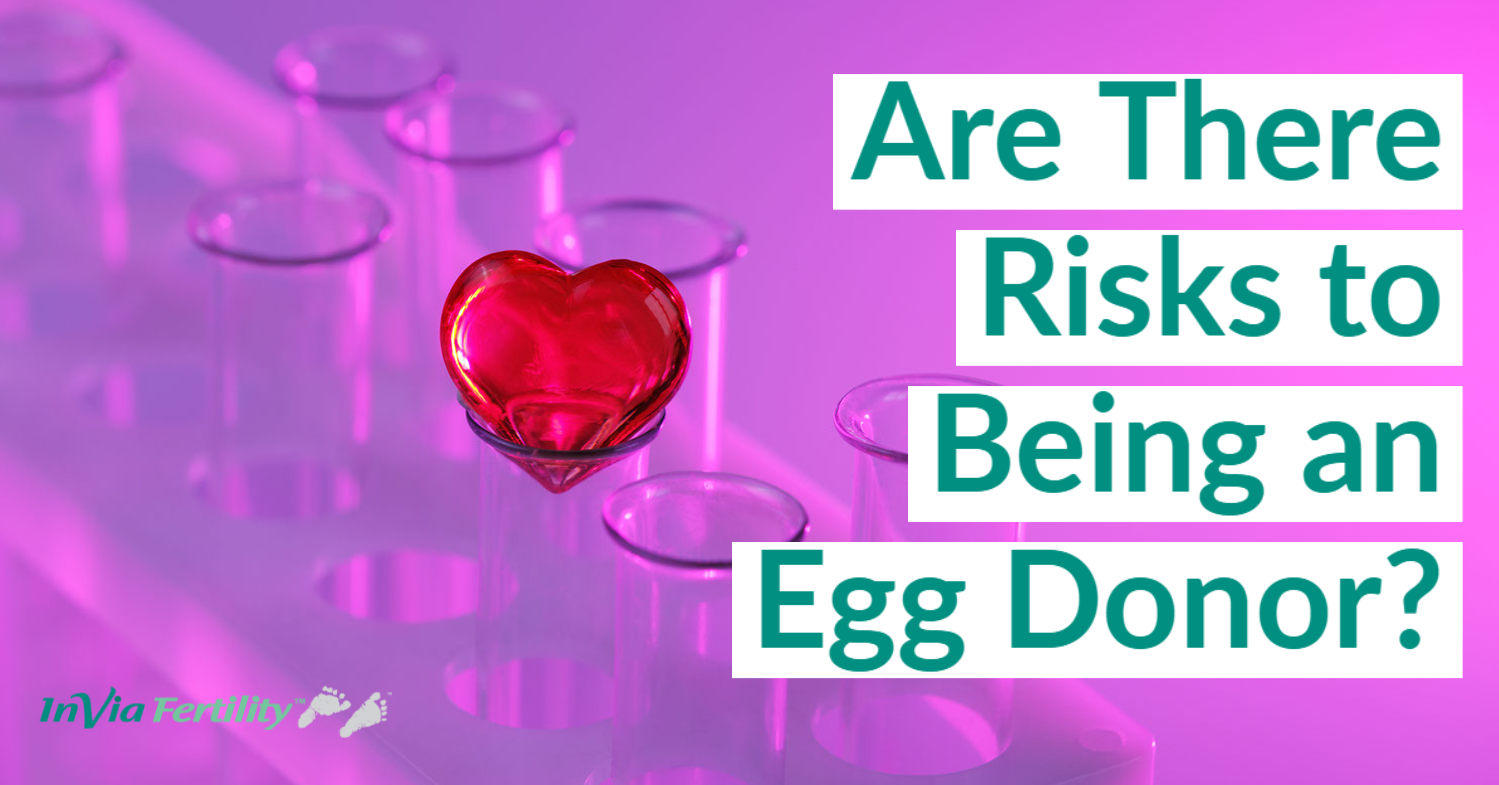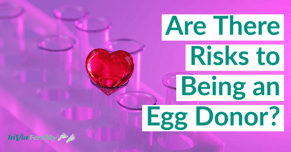We are experiencing a very high volume of calls and messages and ask for your patience. We will answer your portal messages within 48 hours.
We are experiencing a very high volume of calls and messages and ask for your patience. We will answer your portal messages within 48 hours.

 Egg donation is generally very safe with no long-term risks. Society would not permit a young, healthy woman to donate her eggs if the procedure was always dangerous.
Egg donation is generally very safe with no long-term risks. Society would not permit a young, healthy woman to donate her eggs if the procedure was always dangerous.
However, there are some short-term risks associated with egg donation, and some egg donors will experience complications. Knowing the warning signs and being educated about these complications will help reduce their impact drastically.
Here are some of the most common complications you should be aware of when making the decision to donate your eggs.
Pregnancy!
Yup, no kidding. When you are in an egg donation cycle, you will be off all birth control and will be producing multiple eggs because of the stimulation medications. If you have unprotected intercourse during your cycle (which you are told not to), you can become pregnant. This could occur if some of the eggs are released before your retrieval, or if not all of your mature eggs are retrieved.
You must abstain from intercourse or use effective barrier contraception. Remember – you are taking stimulation medications, the same ones a woman going through fertility treatment to get pregnant is taking. Theoretically, since more than one egg could be left behind, you could actually wind up having a multifetal pregnancy-- not just one!
Donors can gain approximately 3-5 pounds in weight due to an increase in the size of their ovaries and associated fluid retention (taller women may gain more). This is temporary and should resolve completely following your first period after your donor cycle is complete.
The fertility injections you'll have to take contain higher doses of the same hormones that the brain releases to stimulate the ovaries to produce multiple eggs:
As the ovaries respond, you'll experience bloating and cramping. You can take Tylenol for the discomfort. However, if the symptoms are severe, you should call the office immediately. This may be a sign of ovarian hyperstimulation syndrome (OHSS), which is discussed later.
Both the birth control pills you are prescribed as well as the injectable medications (especially Lupron) you will be taking as an egg donor may cause you some side effects that are similar to premenstrual syndrome (PMS). You may have hot flashes, vaginal dryness, fatigue, sleep problems, body aches, mood swings, breast tenderness, headache, slight bloating, etc.
In very rare cases, some donors are exquisitely sensitive to the stimulation medications. This results in an exaggerated swelling of the ovaries and fluid collection in the abdomen and chest. This is known as OHSS and occurs in less than 5% of all egg donors.
When mild, you may have abdominal pain, pressure, and swelling which should go away after your next period. When moderate, you may require careful monitoring, bed rest, and pain medications. When severe, which is rare but very serious, there is a possibility of serious medical complications such as blood clots, kidney failure, fluid build-up in the lungs, and shock. Severe OHSS normally requires hospitalization.
If you have any abdominal discomfort, weight gain, headaches, severe nausea or vomiting etc., please contact the office as soon as possible. Egg donors are monitored very closely and it's important for us to be aware of how you are feeling.
During egg retrieval, a needle is inserted into your ovary and there may be bleeding. Although it is very rare, it is possible to damage or puncture the bowel, bladder, or nearby blood vessels. Spotting is normal after your retrieval, but if you bleed heavily, contact the office immediately.
To prevent infection, you will receive an antibiotic intravenously. A member of our staff will also contact you the morning after your retrieval to see how you are feeling. Two weeks after retrieval, you'll also come back to the clinic for a check-up.
The simple answer is no! When a woman starts getting her periods, there are approximately 300,000 eggs. In her reproductive lifespan, a woman will ovulate around 400 times. So, there are hundreds of thousands of “spare” eggs. With each cycle, we will retrieve around 12 – 25 eggs. Even with 6 such cycles (the maximum number permitted) the number of eggs retrieved will not affect future menses, fertility or menopause.
A recent study measured anti-mullerian hormone levels (AMH) in donors who had undergone multiple cycles over a period of a couple of years. AMH is a marker of the number of eggs that remain in the ovary. These donors did not show any decrease in their AMH levels, indicating that their fertility was not affected by the procedure.
We pride ourselves on being one of the few clinics in the country with an in-house egg donor program, and we value our donors very highly. Find out if you could be someone's perfect match - apply today!

Entire Website © 2003 - 2020
Karande and Associates d/b/a InVia
Fertility Specialists
